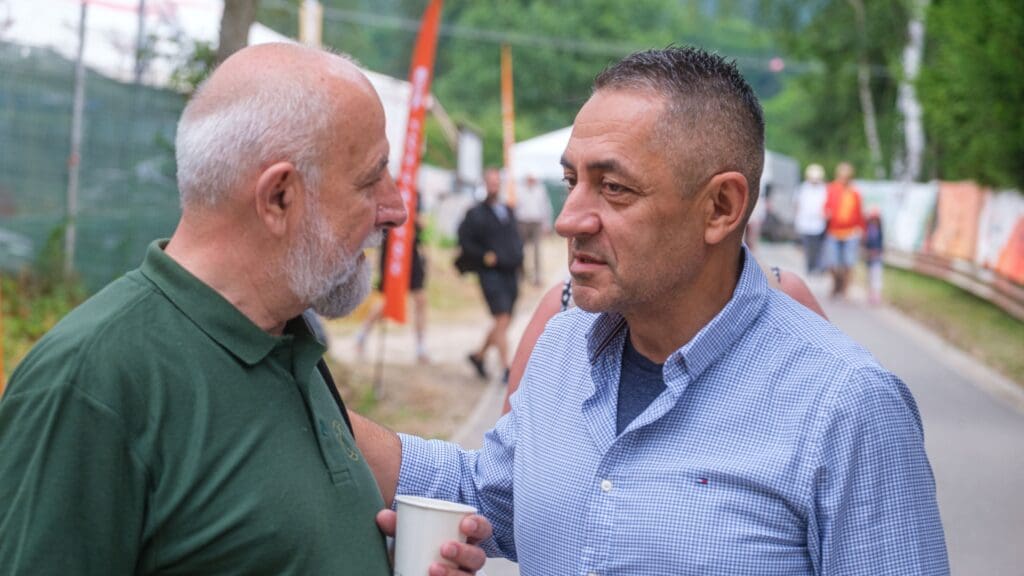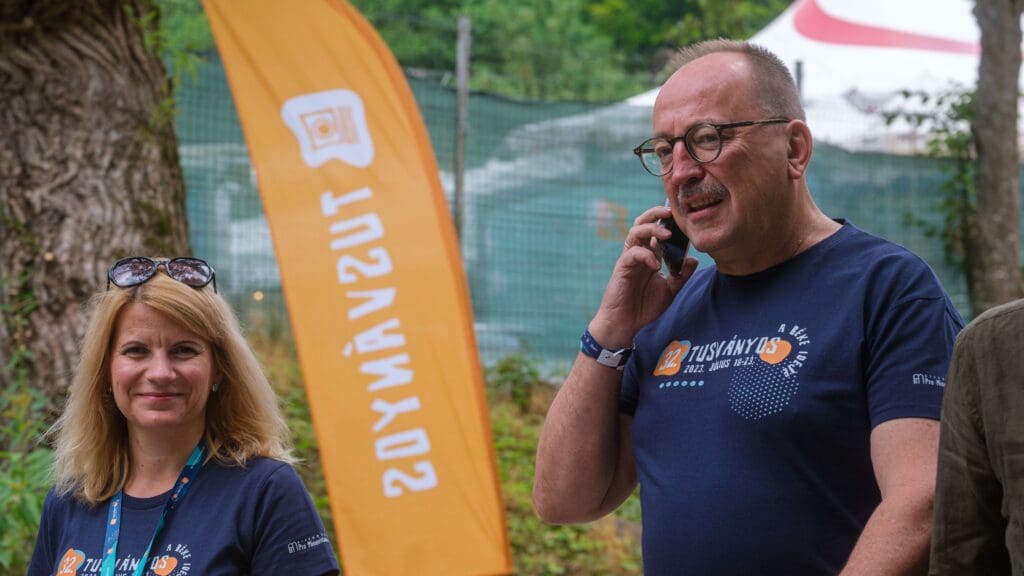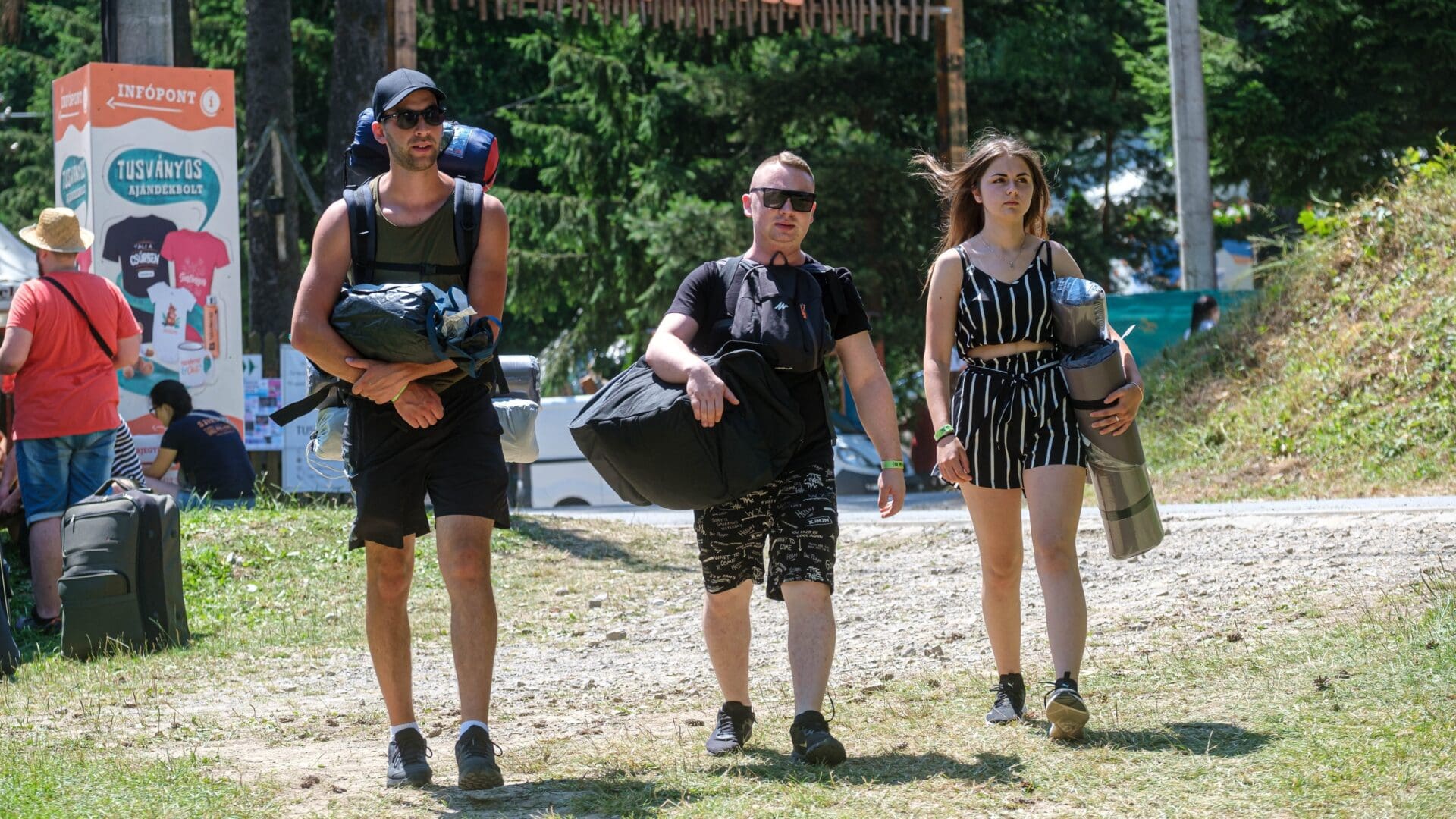‘The time for peace has come, and for the Hungarian people, there is no other alternative, whether we live in Hungary, the Carpathian Basin, or anywhere else in the world,’ Secretary of State for National Policy Árpád János Potápi declared at the opening of the public programmes of the 32nd Bálványosi Summer Free University and Student Camp in Tusnádfürdő (Băile Tuşnad) in Transylvania on Wednesday.
Árpád János Potápi emphasised the importance of the physical survival of the Hungarian community in Transcarpathia in the context of the Russo-Ukrainian war. He mentioned that events similar to those after World War II or during the war in Yugoslavia are currently unfolding. Tens of thousands of Hungarians had to leave their homeland and live in exile in Hungary or other parts of the world. ‘Their only “crime” is being Hungarian,’ he added. He stood for an immediate ceasefire and peace., and expressed hope that everyone can be convinced of this reality and common sense.

The State Secretary opined that the most important achievement of the Hungarian government over the past 12–13 years has been
the strengthening of the sense of national cohesion.
Thanks to the efforts in this period, one can today speak of a unified Carpathian Basin in terms of culture, education, and sports.
He highlighted that Tusványos is not only a public-political forum but also a crucial cultural event in the life of Transylvania and the Carpathian Basin. There is no influential figure who has not visited or will not visit Tusnádfürdő during the week. The encounters and discussions here often resonate in the government’s policies: this has been the case over the past 32 years, and hopefully, it will remain so in the future, State Secretary Potápi concluded.
Chairman of the Foreign Affairs Committee of the Hungarian National Assembly Zsolt Németh stated that
Tusványos has been an island of peace since 1990.
There are fundamental values that Hungary cherishes and is proud of, and Hungarians do not want to let go of these ideals and values, and when people come here, they feel like they are flying back to 1989–90. The euphoria and experience of freedom felt back then were defining moments of their lives, which can be experienced again year after year.
Reflecting on the war in Ukraine, he noted that the present-day generation has never been as close to war as it is now. In this situation, Hungary has chosen the path of ‘peace diplomacy.’ The government does not believe in a military solution to the war, and cannot imagine that there is a military solution to it. Therefore, Hungary positioned itself to stay out of this war, but it must be very careful not to end up on the side of the losers.
It is crucial to unambiguously condemn Russian aggression and stand up for Ukraine’s right to self-defence.
He also emphasised that the motherland is experiencing a kind of day-to-day all-out national war, but whatever happens, it is essential to strive for consensus on the most critical issues. ‘We are also the participants of a cultural war, where fundamental values such as human life, the past, history, and gender roles are being questioned,’ he noted. In response to this, he identified
cultural self-defence as the only tool, with Hungary seeking allies believing the same.
He noted the ecumenical worship that was to be held on Wednesday afternoon, at which participants also prayed for peace.

Tibor T. Toró, Vice President of the Transylvanian Hungarian Alliance, pointed out that Tusványos is always more than just a summer university and more than just a festival. He recalled that over the past three decades, Bálványos has outgrown itself and moved to Tusnádfürdő, but the commitment to preserving the values chosen and presented at the beginning has remained unchanged. It is with that commitment in mind that the organisers choose the festival’s motto each year, he remarked.
Tusványos sends a message every year, and this year the message is that it is time for peace, he emphasised. And this is happening in times when dialogue is often replaced by parallel political monologues and when it seems that party interests override national interests. In times when the Hungarian card can still be played and when ‘whipping up tribal instincts’ can overshadow all useful and valuable politics. In this situation, the message conveyed by the festival organisers emphasise the need for cooperation and unity, and Tusványos is a great opportunity to highlight these values.
Tusnádfürdő Mayor Zsolt Butyka highlighted that this year’s events is one of the most beautifully and well-organised ones in the history of Tusványos. This year, for the first time, the town is participating as a co-organiser in implementing the programmes. He also highlighted that Tusnádfürdő has been awarded a development grant worth nearly 20 million euros, and the results of the related projects will hopefully be visible already next year.
The 32nd Tusványos, organised under the motto ‘The Time for Peace,’ will offer around five hundred public and cultural events to festivalgoers before it closes at the end of the week.
Related articles:
Source: MTI







